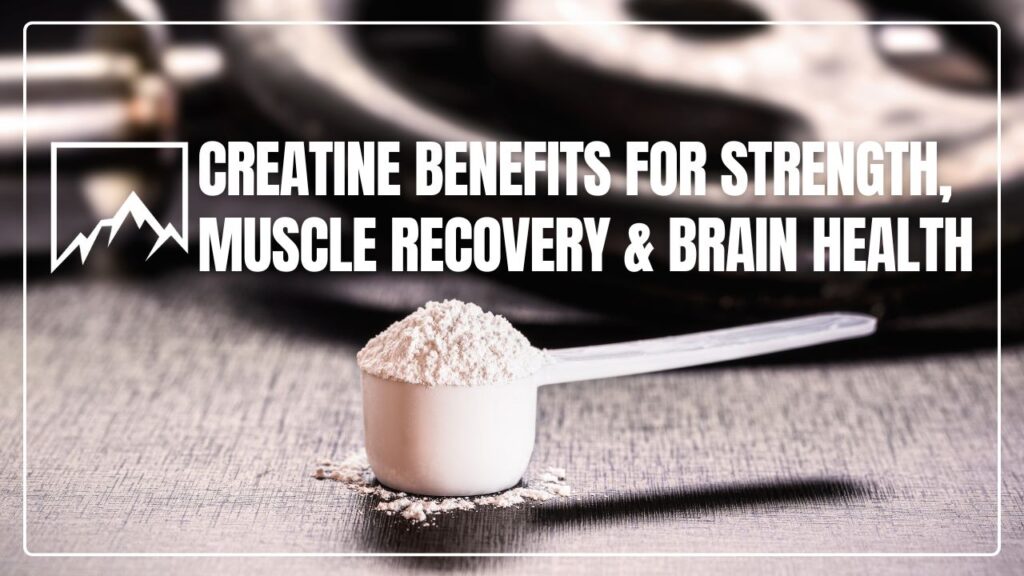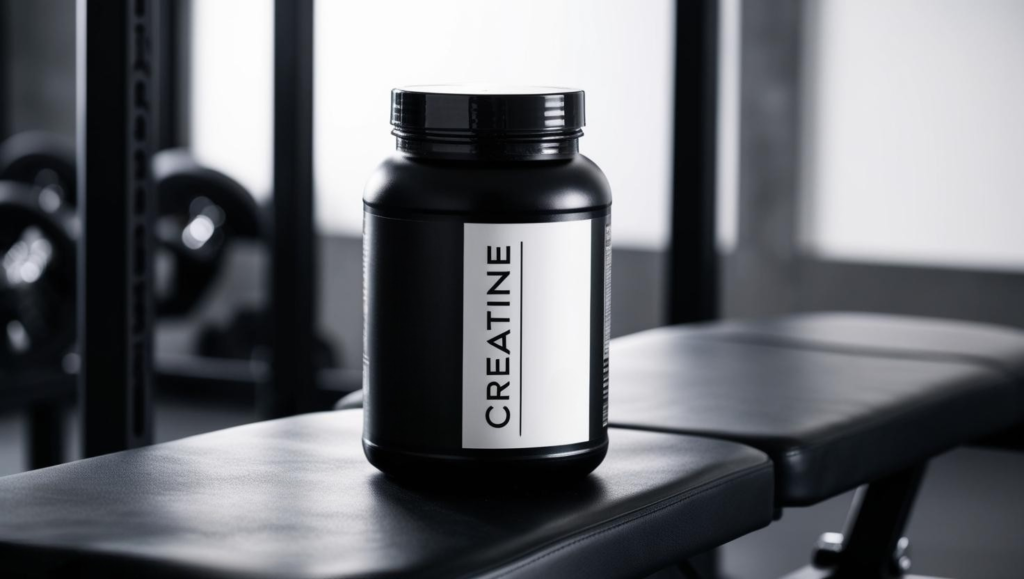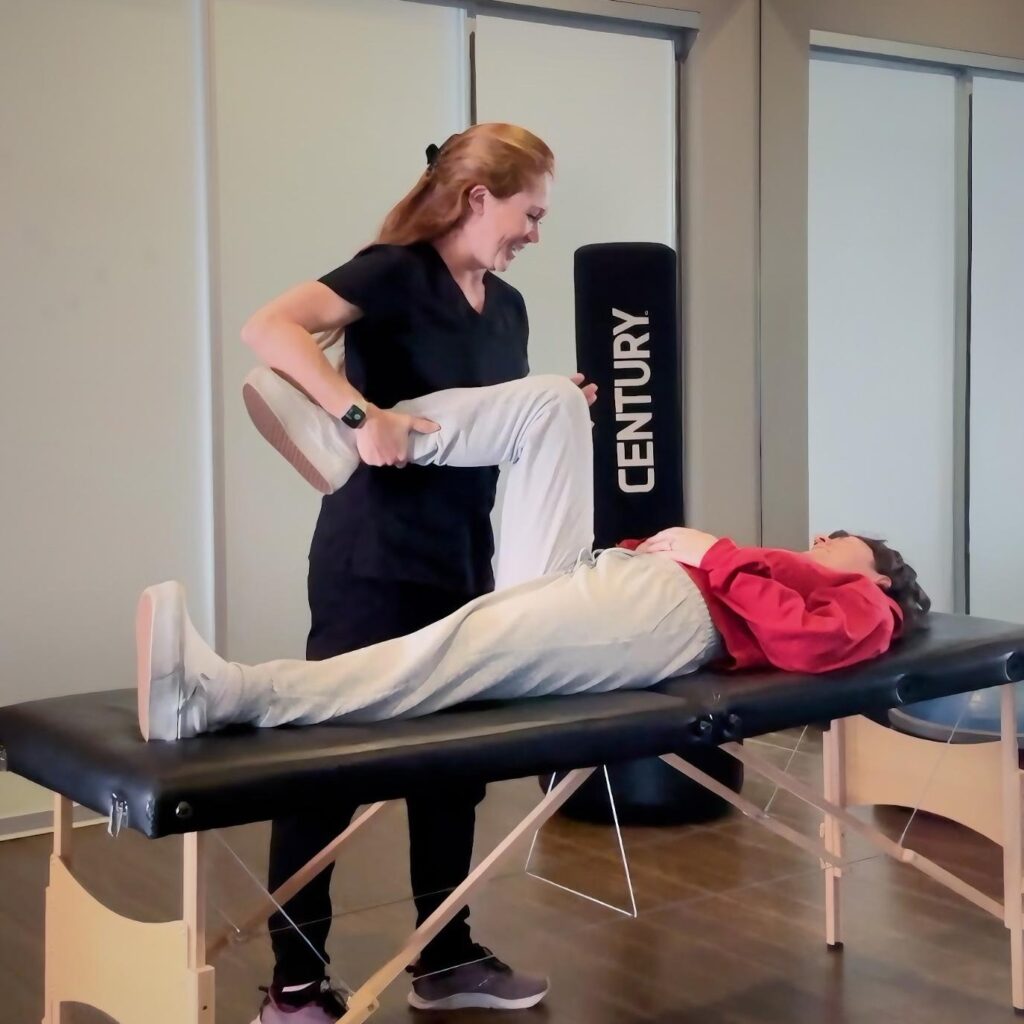
At Rocky Mountain Flex, we know that building strength takes more than just showing up—it requires smart training, proper nutrition, and the right supplements to fuel your progress. While many gym members often turn to great options like BCAAs, EAAs, and whey protein, creatine stands out as one of the most well-researched and widely used supplements.
Creatine is a naturally occurring compound found in muscle cells that helps produce energy during high-intensity exercise. Our bodies can make creatine from three amino acids: arginine, glycine, and methionine, but supplementing with creatine ensures muscles have a steady supply to perform at their best. Decades of research show that creatine can improve exercise performance, increase lean body mass (not to be confused with lean muscle mass—lean body mass includes everything in your body except fat), and enhance strength. It also supports cognitive function, reduces muscle soreness, and speeds up muscle recovery.
So how does it work? Creatine increases phosphocreatine (PCr) levels in muscle cells, which helps rapidly regenerate ATP—the fuel muscles need for quick bursts of effort. This means you can push harder, lift heavier, and sustain high-intensity activity for longer. Sports like weightlifting, sprinting, and team-based activities benefit from this extra energy, making creatine a go-to supplement for athletes who need power and endurance.
Unlike protein, creatine doesn’t directly build muscle, aka muscle protein synthesis, but it plays a crucial role in performance and recovery. Exercise itself also helps boost creatine storage by increasing blood flow, allowing more creatine to enter muscle cells. With its well-documented benefits and strong scientific backing, creatine remains a staple for athletes and non-athletes looking to maximize strength and performance both in and out of the gym.
Where Is Creatine Stored in the Body?
About 95% of the body’s creatine is stored in skeletal muscle, where it plays a crucial role in energy production. The remaining 5% is distributed in the brain, liver, kidneys, and testes, contributing to various metabolic functions.
Our bodies naturally produce creatine, with approximately 1 to 2 grams synthesized daily by the liver, kidneys, pancreas, and brain.
How Do We Get Creatine from Our Diet?
Creatine is naturally found in animal-based proteins, primarily meat and seafood. In fact, the word creatine comes from the Greek kreas, meaning meat. Back in 1832, French scientist Michel Eugène Chevreul isolated creatine from beef tissue, uncovering its role in muscle energy.
A 5g dose of creatine—the typical daily supplementation amount—is found in about one kilogram (2.2 lbs) of steak or fish. While that sounds impressive, let’s put it into perspective:
- If you eat a 5 oz serving of steak or fish, you’re only getting about 0.7g of creatine—meaning you’d need to eat over 35 ounces (more than two pounds) of meat per day to reach 5g naturally.
- Cooking reduces creatine content, making supplementation a more efficient way to ensure consistent intake.
Foods That Contain Creatine
- Red meat
- Fish & seafood
- Cheese
- Pork
- Chicken
- Eggs
Since creatine is primarily found in animal products, non-animal food sources are extremely limited. As a result, vegetarians and vegans tend to have lower creatine levels and will likely benefit from supplementation.
Creatine’s Benefits Beyond Muscle Growth
Creatine isn’t just for muscle performance—it has brain-boosting benefits as well. Research suggests that creatine supports cognitive function, memory, and neuroprotection, making it valuable beyond the gym. Some studies have shown that a single dose can boost memory, though the effects appear to be more pronounced in individuals with mental fatigue or sleep deprivation.
There’s also growing interest in creatine’s neuroprotective potential, with early findings suggesting it may help reduce brain inflammation and limit damage from concussions. While more research is needed, creatine’s connection to brain health—including lower levels of creatine found in individuals with Alzheimer’s—makes it a promising area of study for both cognitive function and long-term neurological protection.
What’s the Best Form of Creatine?
Creatine monohydrate is the most researched and effective form for muscle uptake and performance enhancement. It’s also the most affordable and widely available.
How to Use Creatine for Strength and Performance
The fastest way to increase muscle creatine stores is through a loading phase, taking approximately 20-25g of creatine per day for 5–7 days, followed by a maintenance dose of 3–5g per day to keep levels elevated. This approach is typically used by athletes or bodybuilders who want to maximize their performance quickly.
Alternatively, you can skip the loading phase and take 3–5g per day from the start. This method will still fully saturate your muscles, but it takes about 4 weeks instead of a week. The main difference is that you won’t see immediate performance effects, but the long-term benefits remain the same.
A general guide for creatine intake:
120lbs and under: 3g per day
125-180lbs: 5g per day
185-200lb: 5-10g per day
Some have suggested that consuming creatine alongside carbohydrates improves its uptake into muscle cells. However, research shows that any additional uptake from carbs is minimal, and the best way to increase creatine absorption is simply through regular exercise, particularly weight training.
Since creatine builds up in your muscles over time—think weeks, not hours—you don’t need to take it right before your workout. The key is consistency. Find a time in your daily routine that works for you, whether it’s in the morning, post-workout, or with a meal—just make sure you’re taking it regularly to maintain its benefits.
Should Women Take Creatine?
Absolutely. Women benefit from creatine just as much as men when it comes to strength, power output, and recovery. Despite its strong association with male athletes, women may actually need creatine more because, on average, they naturally have 70–80% lower creatine stores than men.
Covered in This Video: The Top 3 Myths About Creatine
- Creatine does not cause fat gain. Any initial weight increase is due to intramuscular water retention, not fat accumulation. In fact, some research suggests creatine may even support fat loss by improving workout performance.
- Creatine does not cause hair loss or baldness. There is no solid evidence linking creatine supplementation to increased hair shedding or male pattern baldness. The concern comes from a single small study that suggested creatine may slightly increase DHT levels, but no research has confirmed a direct connection to hair loss.
- You don’t need a loading phase for general health benefits. While a loading phase (20g/day for 5-7 days) can help athletes quickly saturate muscle stores, it’s not necessary for overall health, longevity, or cognitive benefits. A steady daily intake of 3-5g per day will still lead to full muscle saturation over time.
For more info, watch the entire video interview “How to Get the Most Out of Creatine“ between Darren G. Candow, Ph.D. and Dr. Gabrielle Lyon
Will Creatine Make Me Gain Weight?
One of the biggest concerns among women and men is bloating and water retention. Creatine pulls water into muscle cells, which can sometimes cause a temporary increase in weight due to water retention, not fat gain. This can contribute to a false sense of weight gain, even though it’s actually benefiting muscle hydration and performance. The effect is more pronounced during a high-dose loading phase, which isn’t necessary for most people.
A more practical and comfortable approach is taking 3-5g per day, allowing the muscles to fully saturate over about four weeks. This method provides the same long-term benefits as a loading phase but with a much lower chance of noticeable bloating or water retention.
Other Common Questions About Creatine
- Is creatine bad for your kidneys or liver?
No—numerous studies have shown that creatine is safe for healthy individuals when taken within recommended doses. However, those with pre-existing kidney conditions should consult a doctor. - Will creatine make me retain water or feel bloated?
Creatine can increase intramuscular water volume, meaning it pulls water into muscle cells. This helps muscles look fuller and supports performance, but it does not cause bloating or lead to excess water retention under the skin. - Will creatine upset my stomach?
Some have noted upset stomach such as cramping and diarrhea while taking creatine. Make sure you are drinking plenty of water with your creatine. If you are in a creatine loading phase, you may try to split your daily dose into 4 servings to consume throughout the day instead of taking a large dose at just one sitting. If you still experience an upset stomach, you may want to switch to the maintenance dose of a 3-5g serving daily instead.
Whether your goal is to build muscle, increase power, or improve endurance, creatine combined with strength training can help you train harder and recover faster, plus it can give you a cognitive boost. It has consistently proven to be safe and beneficial for athletes, as it is one of the most well-researched and effective supplements on the market.
As with any supplement, if you have pre-existing health conditions or concerns, it’s always a good idea to consult with your doctor before starting creatine. But for most people, consistent training, smart nutrition, and proper supplementation can take your training to the next level.
If you’re looking to boost your performance and strength but aren’t sure where to start, we encourage you to reach out to one of our personal trainers at Rocky Mountain Flex. We have some of the best trainers in Denver, each with unique skills and training styles to help you reach your specific goals.















